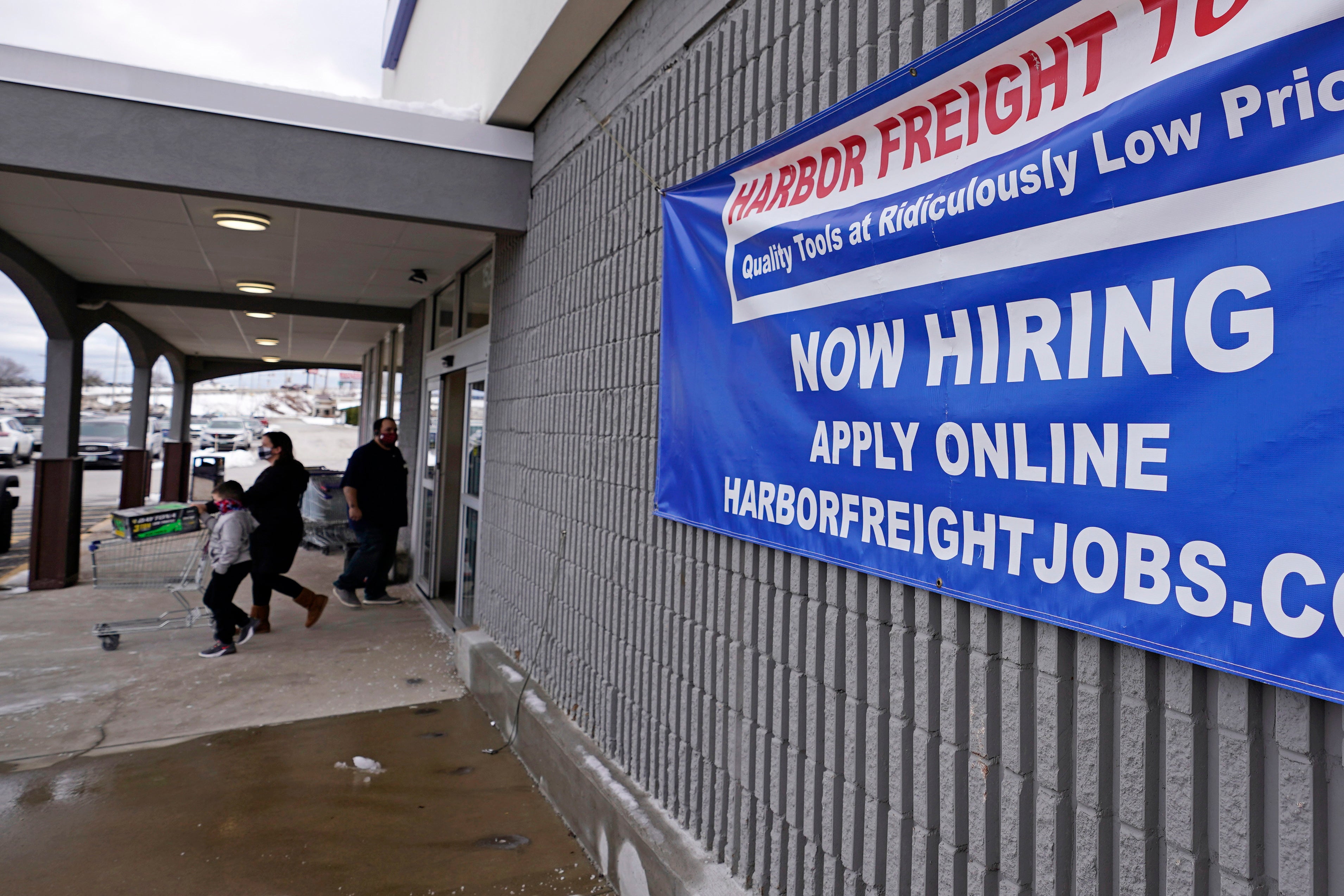US jobless claims decline to a still-high 900,000
Fewer Americans applied for unemployment benefits last week, lowering claims to 900,000, still a historically high level that points to further job cuts in a raging pandemic

Your support helps us to tell the story
From reproductive rights to climate change to Big Tech, The Independent is on the ground when the story is developing. Whether it's investigating the financials of Elon Musk's pro-Trump PAC or producing our latest documentary, 'The A Word', which shines a light on the American women fighting for reproductive rights, we know how important it is to parse out the facts from the messaging.
At such a critical moment in US history, we need reporters on the ground. Your donation allows us to keep sending journalists to speak to both sides of the story.
The Independent is trusted by Americans across the entire political spectrum. And unlike many other quality news outlets, we choose not to lock Americans out of our reporting and analysis with paywalls. We believe quality journalism should be available to everyone, paid for by those who can afford it.
Your support makes all the difference.Fewer Americans applied for unemployment benefits last week, lowering claims to 900,000, still a historically high level that points to further job cuts in a raging pandemic.
The Labor Department's report Thursday underscored that President Joe Biden has inherited an economy that faltered this winter as virus cases spiked, cold weather restricted dining and federal rescue aid expired. The government said that 5.1 million Americans are continuing to receive state jobless benefits, down from 5.2 million in the previous week. That signals that fewer people who are out of work are finding jobs.
New viral infections have begun to slow after months of relentless increases, though they remain high and are averaging about 200,000 a day. The number of deaths in the United States from the pandemic that erupted 10 months ago has surpassed 400,000.
Economists say one factor that likely increased jobless claims in the past two weeks is a government financial aid package that was signed into law in late December. Among other things, it provided a $300-a-week federal unemployment benefit on top of regular state jobless aid. The new benefit, which runs through mid-March, may be encouraging more Americans to apply for jobless benefits.
Once vaccines become more widely distributed, economists expect growth to accelerate in the second half of the year as Americans unleash pent-up demand for travel, dining out and visiting movie theaters and concert halls. Such spending should, in theory, boost hiring and start to regain the nearly 10 million jobs lost to the pandemic.
But for now, the economy is losing ground. Retail sales have fallen for three straight months. Restrictions on restaurants, bars and some stores, along with a reluctance of most Americans to shop, travel and eat out, have led to sharp spending cutbacks. Revenue at restaurants and bars plunged 21% in 2020.
At the same time, a steady weakening of the job market has meant hardship for millions of American households. In December, employers cut 145,000 jobs, the first loss since April and the sixth straight month in which hiring has weakened. The unemployment rate remained stuck at a still-high 6.7%.
Yet there are signs that the $900 billion federal aid package enacted late last month may have begun to cushion the damage, in large part thanks to $600 checks being sent to most adults. The government began distributing the payments at the end of last month.
Those payments have likely helped drive an increase in spending on debit and credit cards issued by Bank of America, economists at the bank wrote last week. Total card spending jumped 9.7% for the week that ended Jan. 9 compared with a year earlier. That was up from a 2% year-over-year increase before the stimulus payments, Bank of America said.
Last week, Biden unveiled a $1.9 trillion coronavirus plan that would provide, among other things, $1,400 checks for most Americans, which, on top of the $600 checks already being distributed, would bring the total to $2,000 per adult.
The new plan would also make available $400 a week in federal benefits for jobless Americans and extend a moratorium on evictions and foreclosures through September. Biden’s $1.9 trillion proposal will require congressional approval.